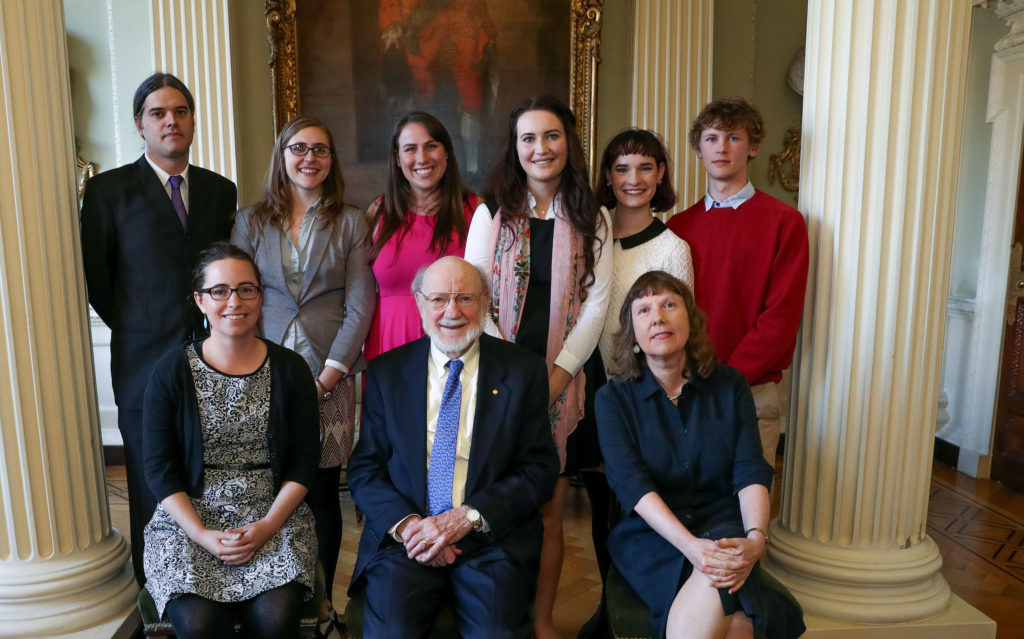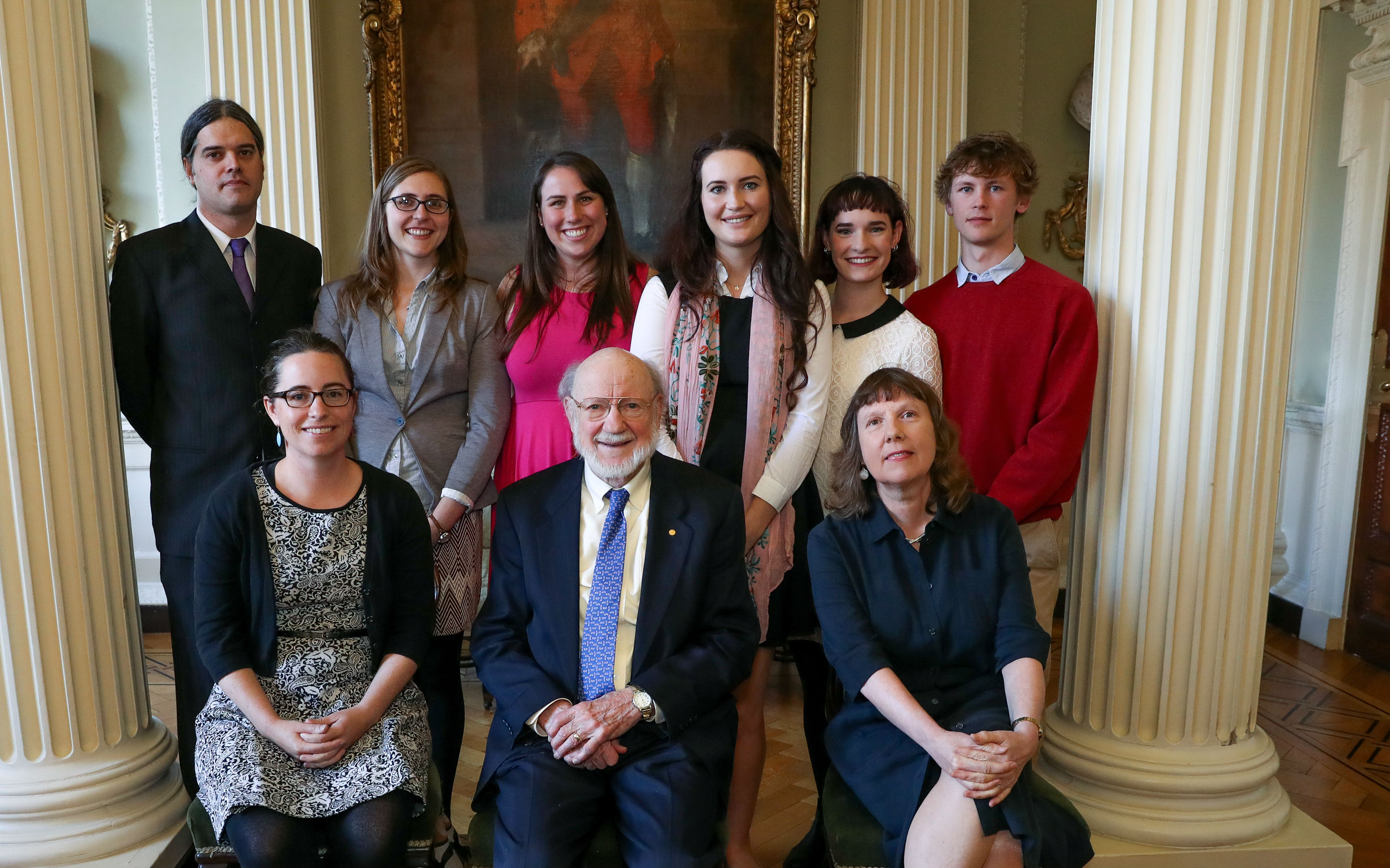
“Parasites are not generally regarded as being loveable. When we refer to people as parasites we are not being complimentary, we are not praising them. We tend to think that a parasite is the sort of person who goes through a revolving door on somebody else’s push. This is unfair. It’s unfair to real parasites… It is time for parasites to get a little more respect!” – Professor William C. Campbell during his 2015 Nobel Prize acceptance speech.
In 2015, Prof. William C. Campbell, a Trinity Zoology graduate, won the Nobel Prize in Physiology or Medicine, for his discovery of ivermectin. The drug can be used to treat a wide range of parasites, but is most widely known for its effectiveness against river blindness. In 1987 the pharmaceutical company Merck enabled the free distribution of the drug to developing countries.
This Nobel Prize, which Prof. Campbell shared with his then colleague Prof. Satoshi Ōmura, is an important accomplishment not only for the Professors themselves as the cherry on top of their careers, but it is also important for the wider academic community.
This Nobel Prize is of importance to what Prof. Celia Holland described as ‘the international worm community’. This community has been struggling for many years to get recognition and funding. This prize therefore finally highlights the importance of parasitic worms. A lot of these parasites are often, despite their wide prevalence, classified as ‘neglected tropical diseases’. Neglected tropical diseases mainly affect the poor communities and are often forgotten in research and in the ‘public health agenda’. It remains to be seen whether some parasites will ever be able to shake their neglected status, but this Nobel Prize and associated international attention could be a great step in the right direction.
Hopefully, other pharmaceutical companies will take note of this prize. Giving away lifesaving medicine should be celebrated. We all know of the negative press pharmaceutical companies have gotten such as the recent price hikes in epi-pens. However, we tend to forget and ignore when pharmaceutical companies go to great lengths to help those in need. I see this prize also as a celebration of Merck for showing how it can be done differently. Because, really, what is the point of us producing any medical research if it doesn’t translate into affordable medicine?
During Prof. Campbell’s visit to TCD, the provost announced a new lectureship position in parasitology in honour of Prof. Campbell and the work he has done for the international worm community. Needless to say that this position would not have existed without Prof. Campbell’s Nobel Prize. Parasitology is a struggling field worldwide and every lectureship position is one to be valued and celebrated. This lectureship shows the commitment of the university to parasitology and will reinforce Trinity’s leading role in parasitological research within Ireland.
Additionally, this is an inspirational story for a lot of people. The story of ivermectin is a great motivation for parasitologists like myself. I work on a parasitic nematode called Ascaris, which infects 800 million people worldwide every year. Much like river blindness, it is also a neglected tropical disease, and as is often the case for these types of diseases, there isn’t much interest or funding going around. So it’s great at the start of my PhD to see that this type of research can also be honoured and valued.
I’ve read interviews of Prof. Campbell where he said that this prize meant the end of his retirement. I’m sorry to hear that his well-deserved retirement has been shaken up, but Prof. Campbell took one for the team and is promoting parasitic worm research to whoever wants to listen, just as he did before, only now he has a broader audience.
Author: Gwen Deslyper (seen charming Bill at 1:49 )

